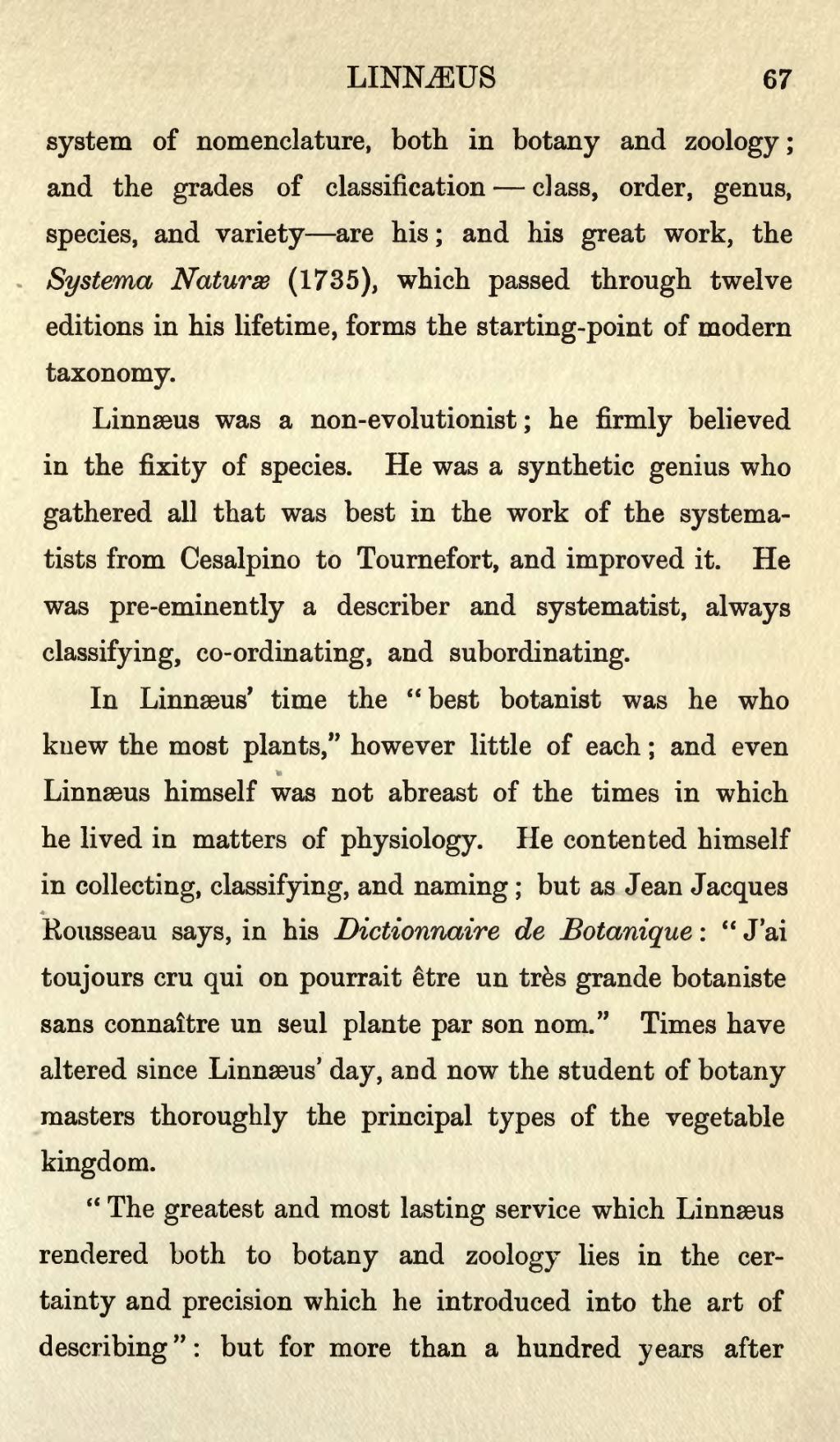system of nomenclature, both in botany and zoology; and the grades of classification—class, order, genus, species, and variety are his; and his great work, the Systema Naturæ (1735), which passed through twelve editions in his lifetime, forms the starting-point of modern taxonomy.
Linnæus was a non-evolutionist; he firmly believed in the fixity of species. He was a synthetic genius who gathered all that was best in the work of the systematists from Cesalpino to Tournefort, and improved it. He was pre-eminently a describer and systematist, always classifying, co-ordinating, and subordinating.
In Linnæus' time the "best botanist was he who knew the most plants," however little of each; and even Linnæus himself was not abreast of the times in which he lived in matters of physiology. He contented himself in collecting, classifying, and naming; but as Jean Jacques Rousseau says, in his Dictionnaire de Botanique: "J'ai toujours cru qui on pourrait être un très grande botaniste sans connaître un seul plante par son nom." Times have altered since Linnæus' day, and now the student of botany masters thoroughly the principal types of the vegetable kingdom.
"The greatest and most lasting service which Linnæus rendered both to botany and zoology lies in the certainty and precision which he introduced into the art of describing": but for more than a hundred years after
